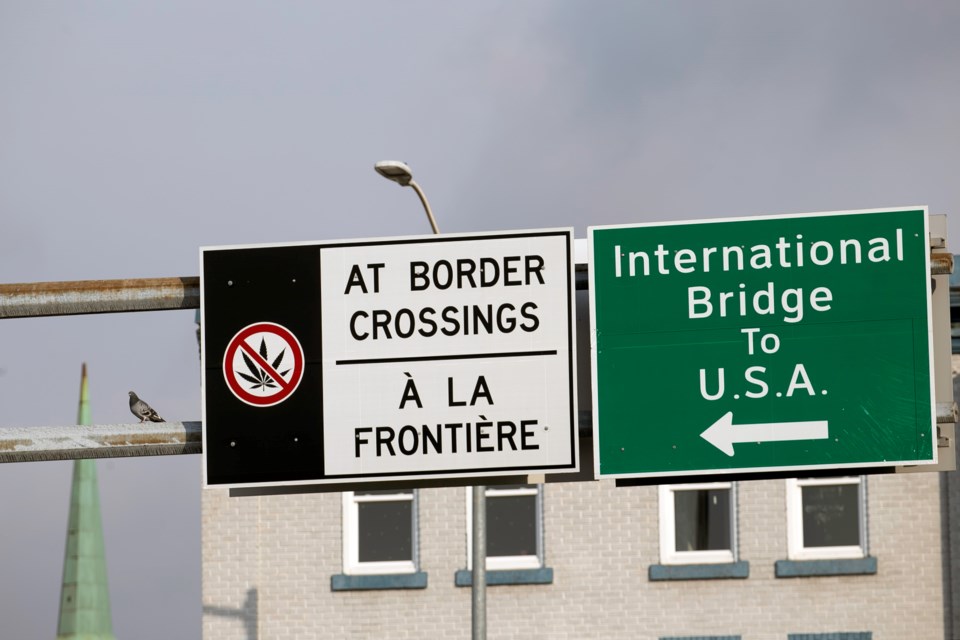Despite Canada relaxing its rules for travellers entering or re-entering the country, one of Sault Michigan’s top tourism officials says an influx of Canadians coming over for shopping and entertainment purposes has yet to be seen.
Border measures were scaled back Feb. 28, allowing travellers to use a COVID-19 rapid antigen test in order to enter Canada.
“I’m not just hopeful, I’m praying that it happens,” said Linda Hoath, executive director for the Sault Area Convention and Visitors Bureau. “We miss our Canadian neighbours, and a lot of them are family and friends. It’s been a long two years.”
The Sault Area Chamber of Commerce, meanwhile, has been hesitant to share information about COVID-19 antigen testing services that are available locally because it doesn’t want to spread misinformation to would-be cross-border shoppers, according to executive director Tony Haller.
“It seems for a while there it was changing on a daily basis,” Haller said.
The Public Health Agency of Canada (PHAC) says that for the purpose of shorter trips to the United States, antigen tests must be administered in that country no later than one day before travellers' scheduled arrival at the border.
Right now, it appears there are two places where those heading to Sault Michigan can go for a COVID-19 antigen test that will be accepted by Canadian Border Services Agency.
The E-Free Church Sault Campus at 1901 John Street (behind Walgreens and Family Dollar off of the I-75 Business Spur) is offering antigen testing at no cost, with test results made available approximately 30 minutes after test via email or text message. Testing is available from 7 a.m. to 1 p.m. Monday to Friday. Patients will be asked to complete a form prior to testing.
The Lake Superior State University Health Center is offering both molecular and antigen tests that are accepted for entry into Canada by appointment only. The antigen test, which produces results within 15 minutes, will cost travellers $30 USD. Appointments can be made by calling the health center at (906) 635-2110.
Barring any exemptions, all travellers five years of age and older entering Canada by air, land, train or marine vessel must provide proof of an accepted type of pre-entry COVID-19 test result:
- a valid, professionally administered or observed negative antigen test taken outside of Canada no more than one day before their scheduled departure flight or their arrival at the land border or marine port of entry (note: NOT 24 hours prior to returning)
- a valid negative molecular test taken no more than 72 hours before their scheduled departure flight or their arrival at the land border or marine port of entry
- a previous positive molecular test taken at least 10 calendar days and no more than 180 calendar days before their scheduled departure flight or their arrival at the land border or marine port of entry
“A one-day time frame is used instead of 24 hours to provide more flexibility to travellers,” said PHAC spokesperson Anna Maddison in an email to SooToday. “By using a one-day window, test acceptability does not depend on the time of the flight or the time of day that the test sample was taken.”
PHAC says antigen tests taken in Canada prior to re-entry will not be accepted.
“A negative test taken in Canada before a traveller departs is never a valid test for the purpose of their return,” said Maddison. “The test must be taken outside Canada to be acceptable for re-entry to Canada.”
Positive antigen tests will not be accepted as proof of a prior positive infection. An antigen or molecular test taken outside of a lab or testing environment will not be accepted either, unless a testing provider administered or observed the test remotely by audio-visual means and validated the result.
To be a valid COVID-19 test result for the purpose of entry into Canada, a testing provider must:
- collect or observe the collection of the test sample
- verify the result
- produce a document confirming the result
PHAC says the onus is on travellers to demonstrate that all conditions were met for a valid pre-entry test.
Additional details can be found on the Government of Canada website.
